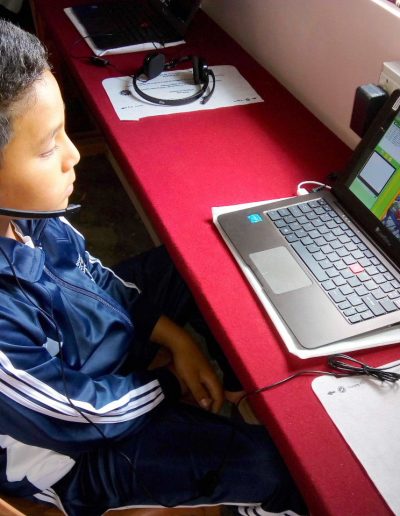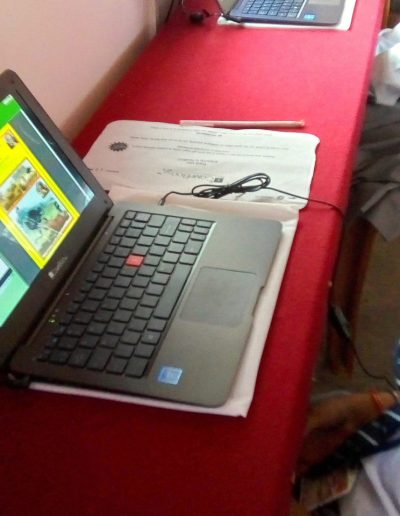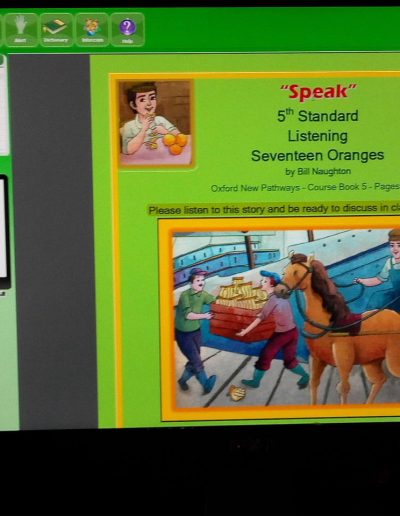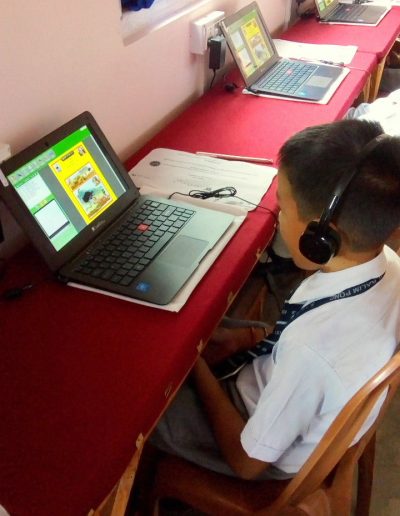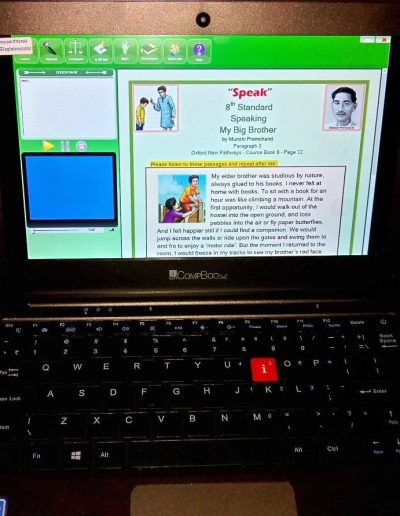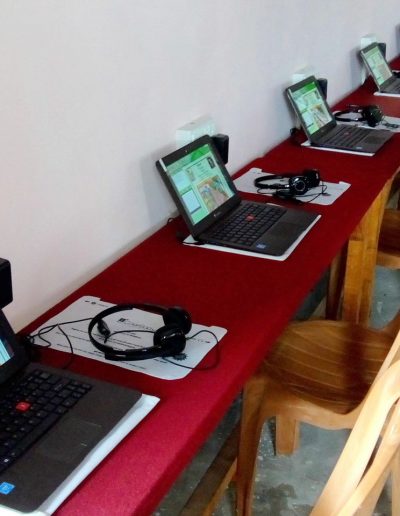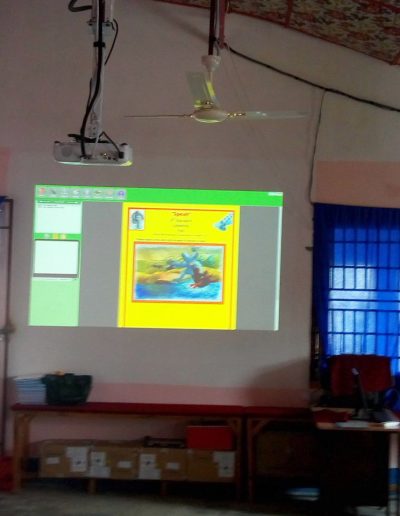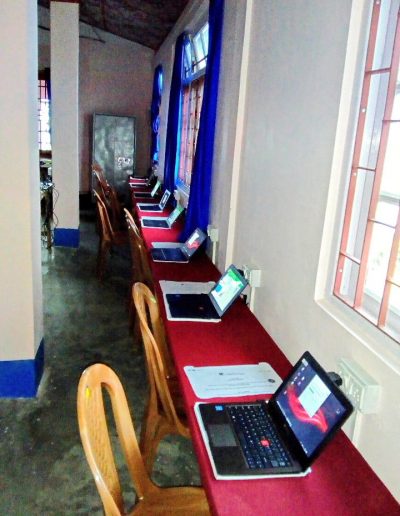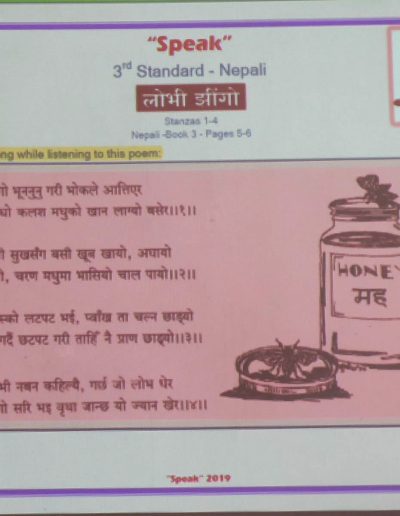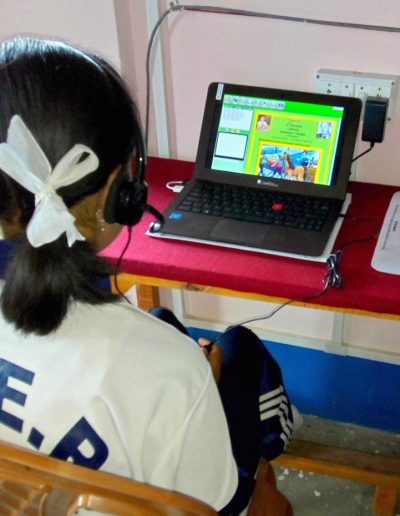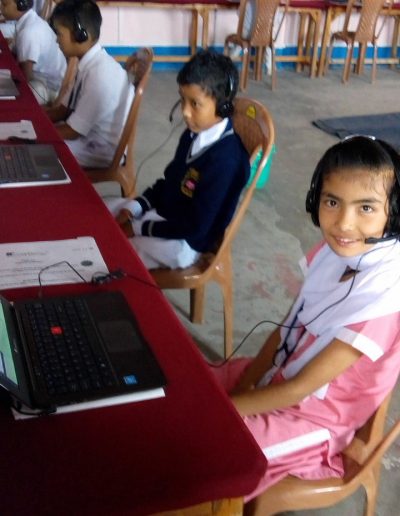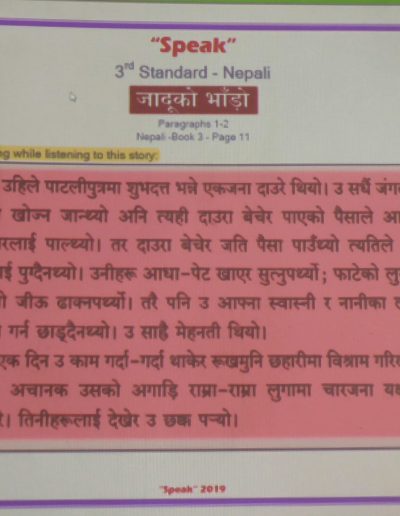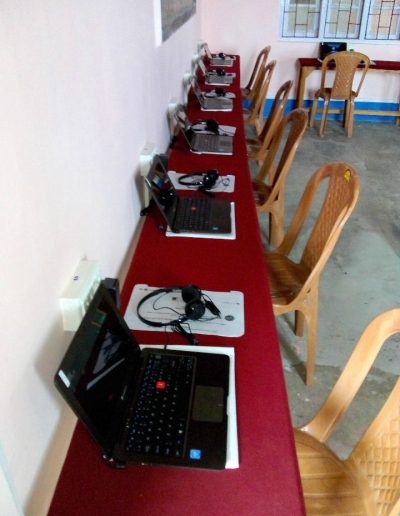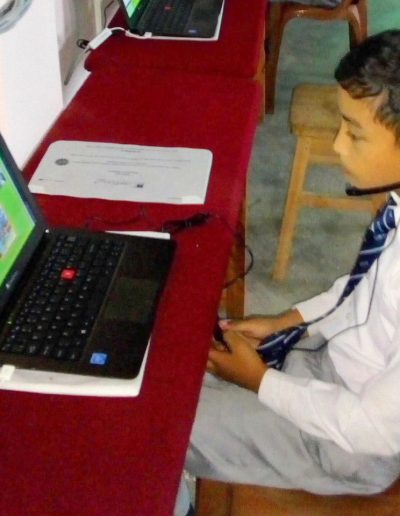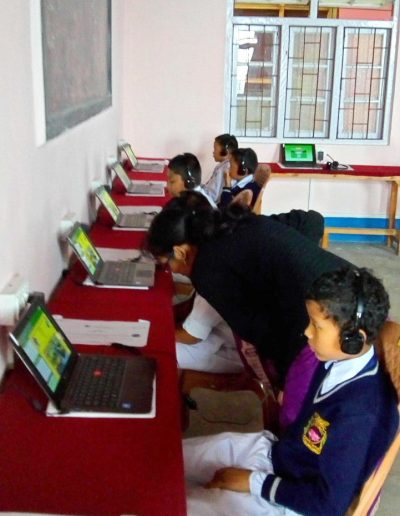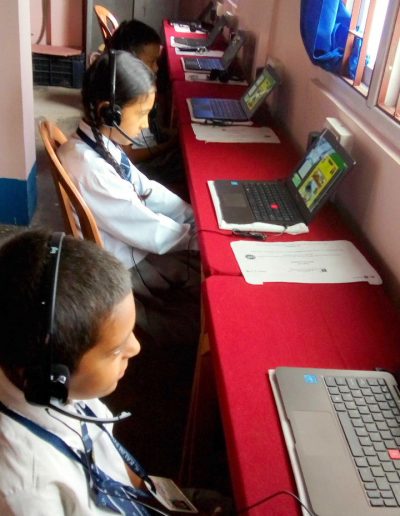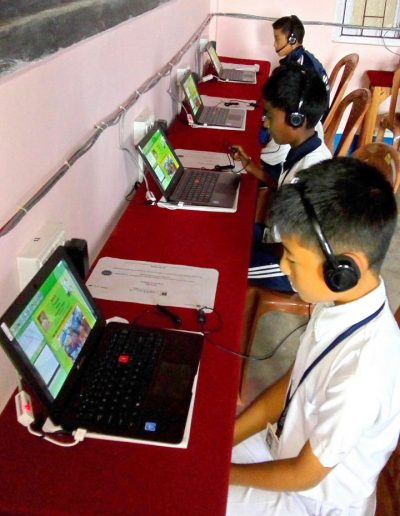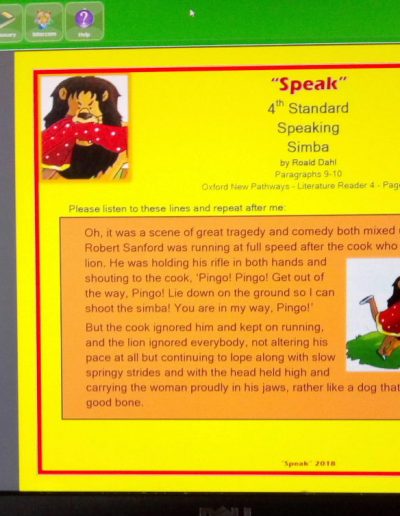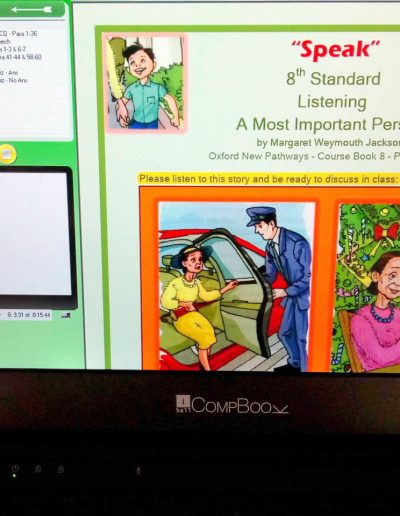E-Learning Class Room
e-Learning Centre at KJVP
Electronic classroom for Computer Science, English, Nepali, Sanskrit
KJVP have invested over ` 5,00,000 in a unique e-Learning centre that enables our students
to quickly master their school language and computer science courses through getting their
“Hands-On” using powerful modern computer systems.
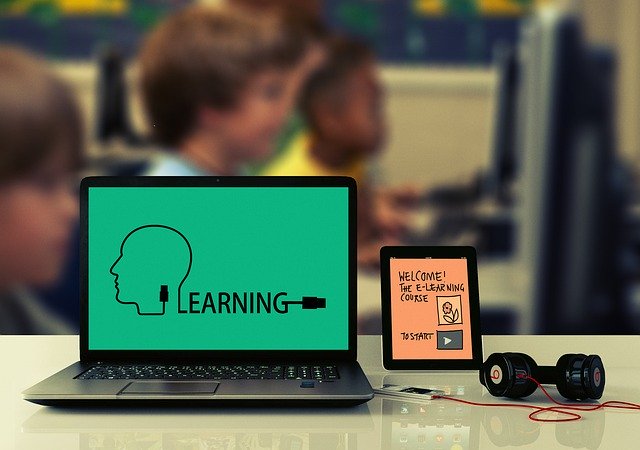
Our e-Learning centre
It has become the busiest and the most popular room in the school
where all our students from class 1 through 12 have regular practical laboratory sessions in
our Computer Lab and Language Lab programmes.
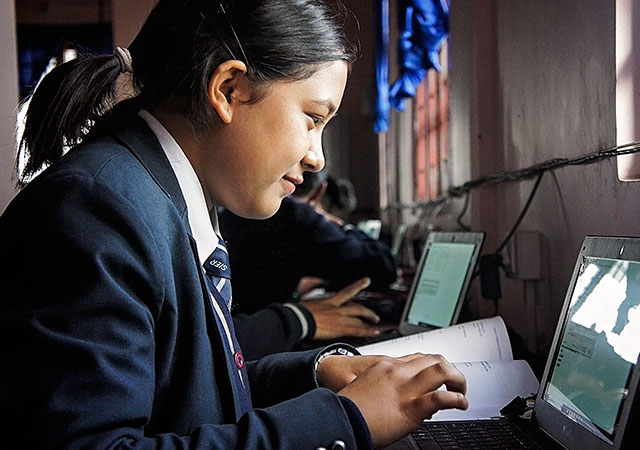
Computer Lab:
Classes 1-12 receive a weekly laboratory practical for their computer science
course allowing every student to become computer literate and master essential computer
skills including the computer, keyboard, word processing, spreadsheets and databases.
Language Lab:
In a uniquely innovative initiative, KJVP has become a pioneer in using
computer software to support our students in their three most important school language
courses. Language Lab focuses on helping our students gain fluency, literacy and
confidence through developing their listening, reading and speaking skills. From year 2020
Language Lab has been implemented as weekly double period laboratory sessions for;

English
Classes 3-8 – Follows the Oxford New Pathways textbook course.

Nepali
Classes 3-5 – Follows the local textbook course with emphasis on
Nepali language reading skills.

Sanskrit
Classes 6 – 8 – Follow the highly respected Sanskrit Bharati course.
Computer Network:
At the heart of our e-Learning centre is an up-to-date client server network covering 22 individual student seats, each with its own laptop computer equipped with a mouse and headset with microphone. In addition to a powerful computer server and cable network, the e-Learning centre also has two teacher computer stations, supporting
Computer Lab and Language Lab, plus an LED digital projector and digital sound system so that our teachers can demonstrate laboratory work to their students.
Spoken Language:
Language lab gives students at KJVP opportunities to develop natural language through listening and speaking exercises.
Language Lab uses the power of the computer to create a direct one-on-one student to teacher learning experience, an advantage that cannot be achieved in a regular classroom.
Language Lab currently includes some 2,000 lessons, all directly reflecting material from students’ textbook courses.
Mirroring Textbook Course:
Language Lab always works with the class textbook course maintaining familiarity and helping students learn more quickly.
Laboratory exercises draw on material from class textbooks
Exercises are presented in a rich colourful multimedia format
Familiar and unfamiliar voices are used
Exercises involve Listening, Reading and Speaking tasks
Students have the opportunity to record, replay and correct their own speech
Students work at their own pace
Teachers are available to assist students individually as needed
Eleven Kinds of Exercises:
Language lab uses a variety of exercises to help students learn.
Listening Hearing
a fluent speaker read the chapter story, poem or drama.
Reading With-me.
Where the student reads with the teacher while listening to the passage.
Vocabulary Repeat After-me
. Listening to, reading and repeating new words after the teacher.
Grammar Repeat After-me.
Listening to, reading and repeating grammatical phrases after the teacher
Discussion Talk.
Speaking about a topic, usually based on a picture illustrating a story or poem.
Pronunciation
Repeat After-me. Listening to, reading and repeating difficult words and phrases after the teacher.
Comprehension Story-telling.
Telling the story in your own words.
Oral Quiz. Recording answers to questions about what has
been heard, similar to question and answer in a class room.
Multiple Choice Quiz. This is an exciting interactive session
that allows students to select answers to questions and receive
scores while listening to a story or poem.
Speaking Repeat After-me.
Listening to and repeating a passage after the teacher.
From prose or verse. Reading and recording a passage without being prompted.
Education is an admirable thing, but it is well to remember from time to time that nothing that is worth knowing can be taught.
Oscar Wilde

